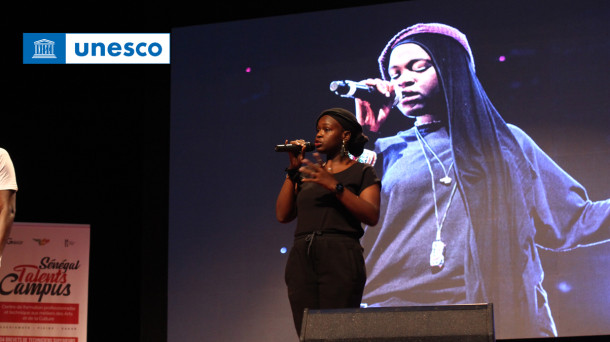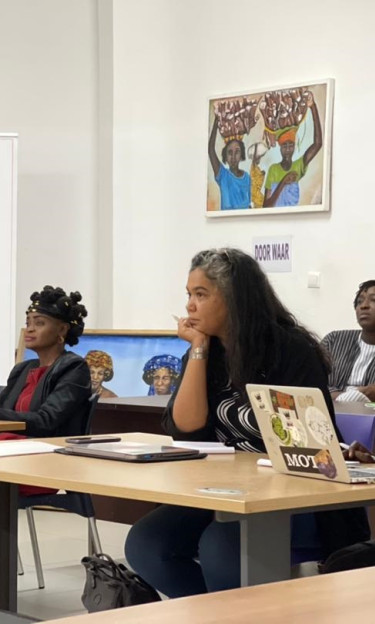News
Building back better! Palestine, Peru, and Senegal pave the way for stronger and more inclusive creative industries

The project funded by Sweden ReIShaping Cultural Policies for the Promotion of Fundamental Freedoms and the Diversity of Cultural Expressions has supported Palestine, Peru, and Senegal to tackle some of the challenges faced by the contemporary cultural and creative industries (CCIs).
Collectively rethinking strategies to enhance creativity in Peru
Driven by dynamic networks of stakeholders, over 1 200 Peruvian cultural professionals from 25 regions, including indigenous groups, took part in a nation-wide series of consultations across the country to add their voice to the elaboration of the Plan for the Recovery of Cultural Industries and the Arts to 2030. People with disabilities and those using sign language also participated, ensuring the consultations were as inclusive as possible.
Officially adopted and launched in April 2022, the Recovery Plan outlined several strategies for the creative sectors, not only to improve the working conditions of artists, but also towards more equal opportunities in the CCIs, especially for indigenous and Afro-Peruvian populations, as well as women.
Empowering women creatives for more inclusive cultural sectors in Senegal
In 2021, a first generation of young creative professionals were trained in the newly established Senegal Talent Campus, the country’s first technical and vocational training center for arts and cultural professions, launched by AFRICULTURBAN, G Hip hop and the House of Urban Cultures in cooperation with the UNESCO Office in Dakar. Among them, 25 young women participated in an all-female training in cultural management, giving them concrete tools to become the creative entrepreneurs of tomorrow. A special feature of this programme was also the inclusion of established Senegalese female cultural managers in the teaching staff, who took part in a training-of-trainers workshop.
Established female professionals were also given the spotlight through the digital campaigns #Weareyennega and “The voices of resilient women” to advocate for more gender equality in exposure and opportunities in the CCIs.
Advancing the digital and local creative economy in Palestine
In Palestine, a national assessment was undertaken to engage cultural actors from Gaza and the West Bank to understand the impact of COVID-19 with the aim of shedding light on opportunities generated by the digital environment. As a result, two key studies were published on the Effects of COVID-19 on the Palestinian Cultural scene and on Digital Culture in Palestine. These studies provided a set of recommendations which will help in the design of a national strategy for culture.
At the local level, the nomination of the city of Bethlehem as the Arab Capital of Culture was also the occasion to reiterate the crucial role of CCIs for sustainable urban development. A symposium on the creative economy addressing a study on the city’s creative sector was held. Additionally, four radio episodes focused on the creative economy and the Global Report 2022 were broadcasted across five local radio stations.
Watch this video to learn more about Bethlehem’s rich creative sector:
The work of the project ReIShaping Cultural Policies for the Promotion of Fundamental Freedoms and the Diversity of Cultural Expressions was a marked success, thanks to generous support from the government of Sweden. In 2022, Sweden renewed its commitment to support a new phase of the project. This new phase will strengthen participatory and evidence-based policy monitoring and policy making in eleven countries -Bolivia (Plurinational State of), Botswana, Cabo Verde, Côte d‘Ivoire, Indonesia, Lao PDR, Mexico, Peru, Senegal, South Sudan, Sudan - to support sustainable and inclusive development in the ever-evolving creative sectors.









